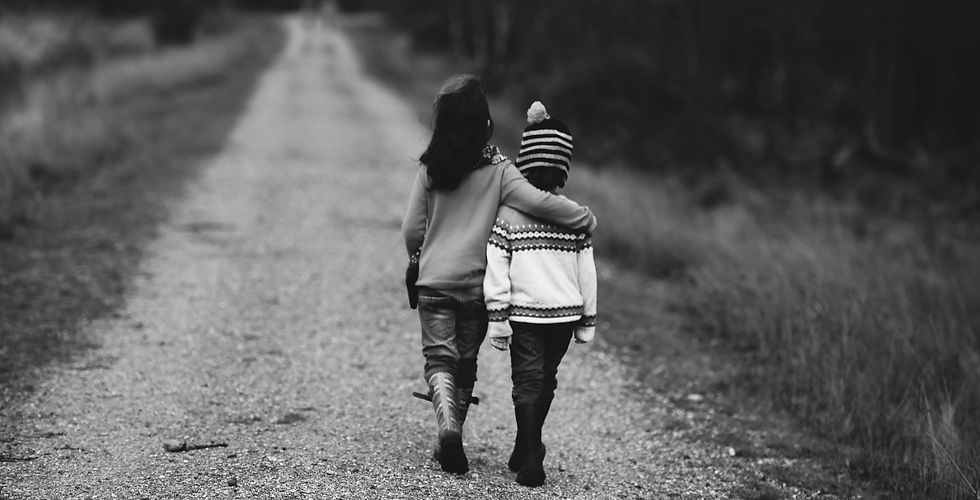How Empathy can Distort our Perceptions? The Empathy Bias.
- Mayur Mathur
- Sep 11, 2022
- 4 min read

As I saw the shocking images and videos of the devastating floods in Pakistan and reports of thousands of casualties with millions displaced, it sent a shiver down my spine. Not only does it engender a grave sense of anxiety due to the widespread impact that climate change is wreaking but it also raises an intriguing question as to whether such tragedies or the dismal state of affairs on the other side of the border widens the 'empathy gap' in us or narrows it? And as controversial and touchy as this topic might be to a significantly larger section of our society, it is not hard to stop, look back and take notice that despite being part of a fairly peaceful non-war-like last four decades, over time the ‘us’ versus ‘them’ narrative has only gotten intensified.
Recently some cool dudes from Ivy League universities collaborated to figure out what this ‘empathy bias’ can cause in people who have a strong sense of belonging to a particular group, community, or country. To delineate, an empathy bias or a gap (as some psychologists prefer to call it) is precisely a gap that exists between how much we empathize with our own group vis-a-vis how much we empathize with another group. A widening of the gap would then mean a reduction in empathy and a narrowing of that gap would mean heightened feelings of empathy. Oh my bad! I forgot to define empathy itself! Empathy, generally associated with being compassionate can be loosely defined as ‘the ability to understand the other by putting oneself emotionally in the shoes of the other.’
Coming back, the above study measured the degree to which the subjects felt good or bad about the fortunes or misfortunes of their own group vis-a-vis the other group. They studied three different social groups – how Americans felt about the people from the Middle East, how Hungarians felt about Muslim refugees, and how Greeks felt about the Germans. The results of the study are not so different from what is omnipresent in our society and what we regularly get to hear from people around us. Not only did the participants exhibit a natural bias for their own group but this empathy bias strongly suggested a lowering of willingness to support the other group. Superimposing these results on society leads us to a paradox - the stronger you feel connected to a community, the more empathy you feel towards your own community the lesser empathy you will exhibit to an ‘outside’ group and the lesser you will feel motivated to extend support to that group – even when they are suffering.
Even though you may feel cool and garner a lot of attention to be an empathetic person during a discussion over drinks, recent neurological research has shown that there is a distinct difference in how empathy plays on an individual level versus how it plays on a group level. We often perceive that groups or communities that engage in extreme violence lack empathy. However, many studies conducted on Israelis and Palestinians have shown otherwise. They reveal that these people have high empathy for their own group but low empathy for the group they oppose. People also experience a gap as they dwell on the things that happened in the past. This is referred to as a retrospective empathy bias. Kind of like what people on either side of the border suffer!
Moreover, studies also reveal that even your current emotional state can skew your perception of the pain and suffering of others. If shit has hit the fan in your life, it is more likely that you would obviously become more empathetic towards your own group of people but even if you generally are an empathetic individual you still may exhibit lesser empathy towards an outsider considering the lousy emotional state you would be in.
Sigh! If the above is indeed the case and there is an empathy paradox that plays on us, then it raises some dire questions –
Where do we empathetically stand in the face of a crisis?
Is training individuals alone on empathy enough to offset the dehumanizing effects of radicalization?
When we see the pain and suffering of others, do our personal lenses distort our understanding of their pain and suffering?
Are we enhancing the values we attach to ‘our’ people and diminishing or undermining the values of those ‘outside’ of our group?
Is harping about empathy on social media making us more empathetic or more divisive?
As we become more and more polarized in society, are we failing to empathize with the pain and suffering of other groups or communities?
With rising nationalist rhetoric have we become less empathetic towards our fellow human beings?
Even though we are adversely influenced by our emotional states, past history, and a strong sense of belonging to a group/community or nation when it comes to empathy, there is still reason to believe that our brains are wired to correct and counteract the detrimental empathy bias.








Comments